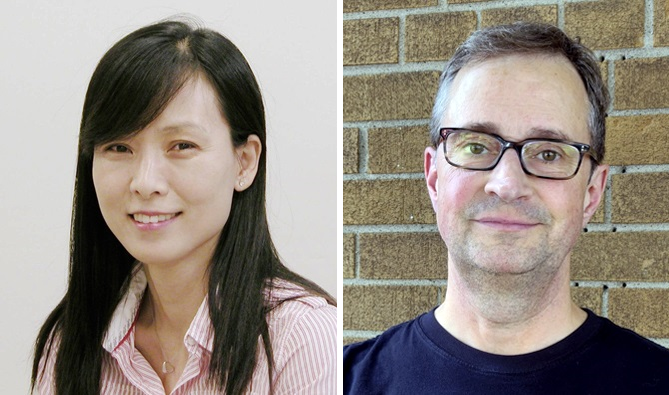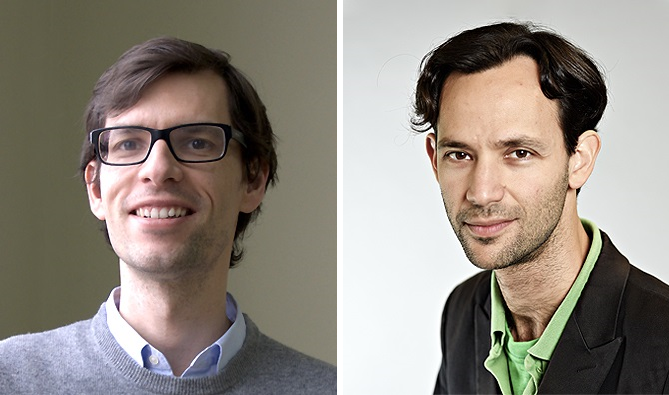From investigation into the universe’s dark matter and the development of new quantum materials, to the literary origins of two of America’s most popular religious movements and computational approaches to the study of cell biology, four researchers from across the Faculty of Arts & Science at the University of Toronto have been awarded Canada Research Chairs (CRCs) recognizing the promise of further advances in their respective fields.
Marking its 20th anniversary this year, the CRC program is the centrepiece of the federal government’s strategy to make Canada a leader in research and development. The program seeks to attract and retain researchers in engineering and the natural sciences, health sciences, humanities and social sciences.
New Arts & Science Canada Research Chairs are:
- Hae-Young Kee, professor, Department of Physics – Canada Research Chair in Theory of Quantum Materials
- John Rogers, professor, Department of English – Canada Research Chair in Early Modern Literature and Culture

With the ever-growing need for powerful computation and the physical size limitation of transistors, quantum materials with properties of entangled physics have become essential for the first steps into quantum computation. Professor Hae-Young Kee proposes to explore new materials involving fractional particles that will elevate the capacities of modern technology and bridge the gap between abstract theory and real materials.
Professor John Rogers’s project, “Latter-Day Milton: Paradise Lost and the Creation of America’s God”, explores the role that poet John Milton's 17th-century epic played in the inception of two of America's most imaginatively robust 19th-century religions, the Church of Jesus Christ of Latter-day Saints and Seventh-Day Adventism. His is the first study to identify the unmistakably literary origin of the theology of those two religious movements, which currently claim over 30 million adherents. It is also the first to pursue why and how so many pious but minimally educated, minimally literate 19th-century Americans assumed the unlikely challenge of reading the daunting masterpiece of the English Renaissance.
Renewed Arts & Science Canada Research Chairs are:
- Jo Bovy, associate professor, David A. Dunlap Department of Astronomy & Astrophysics – Canada Research Chair in Galactic Astrophysics
- Alan Moses, professor, Department of Cell & Systems Biology – Canada Research Chair in Computational Biology

Of all the constituents of the universe, dark matter is one of the most mysterious. Five times more abundant than the ordinary and familiar matter found in planets and stars, and crucial in keeping galaxies from flying apart, little is known about its physical properties. Associate Professor Jo Bovy’s research uses the dynamics of stars in the Milky Way Galaxy to map its dark matter in unprecedented detail. By searching for the imprints of the smallest concentrations of dark matter on stellar trajectories, Bovy’s findings will provide important new clues to its physical nature.
Professor Alan Moses’s research is aimed at understanding the function and evolution of regulatory networks and sequences. His work touches on many of the major areas in computational biology, including DNA and protein-sequence analysis, phylogenetic models, population genetics, expression profiles, regulatory network simulations and image analysis. Moses’ vision is to integrate state-of-the-art computational methods, such as proteome-scale sequence-based bioinformatics and systems biology models, with quantitative single-cell measurements from flow cytometry and fluorescence microscopy.
“I am thrilled to congratulate Professors Bovy, Kee, Moses and Rogers on being recognized for their research excellence,” said Melanie Woodin, dean of the Faculty of Arts & Science. “Being awarded a Canada Research Chair is one of the country’s highest research honours, and the chairship will provide each of them with significant support in their pursuit of excellence in their respective fields.”
The four named today bring the total number of A&S chairholders to 59. U of T holds the largest allocation of research chairs in the country, with more than 300 chairs awarded to the University and its partner hospitals.

